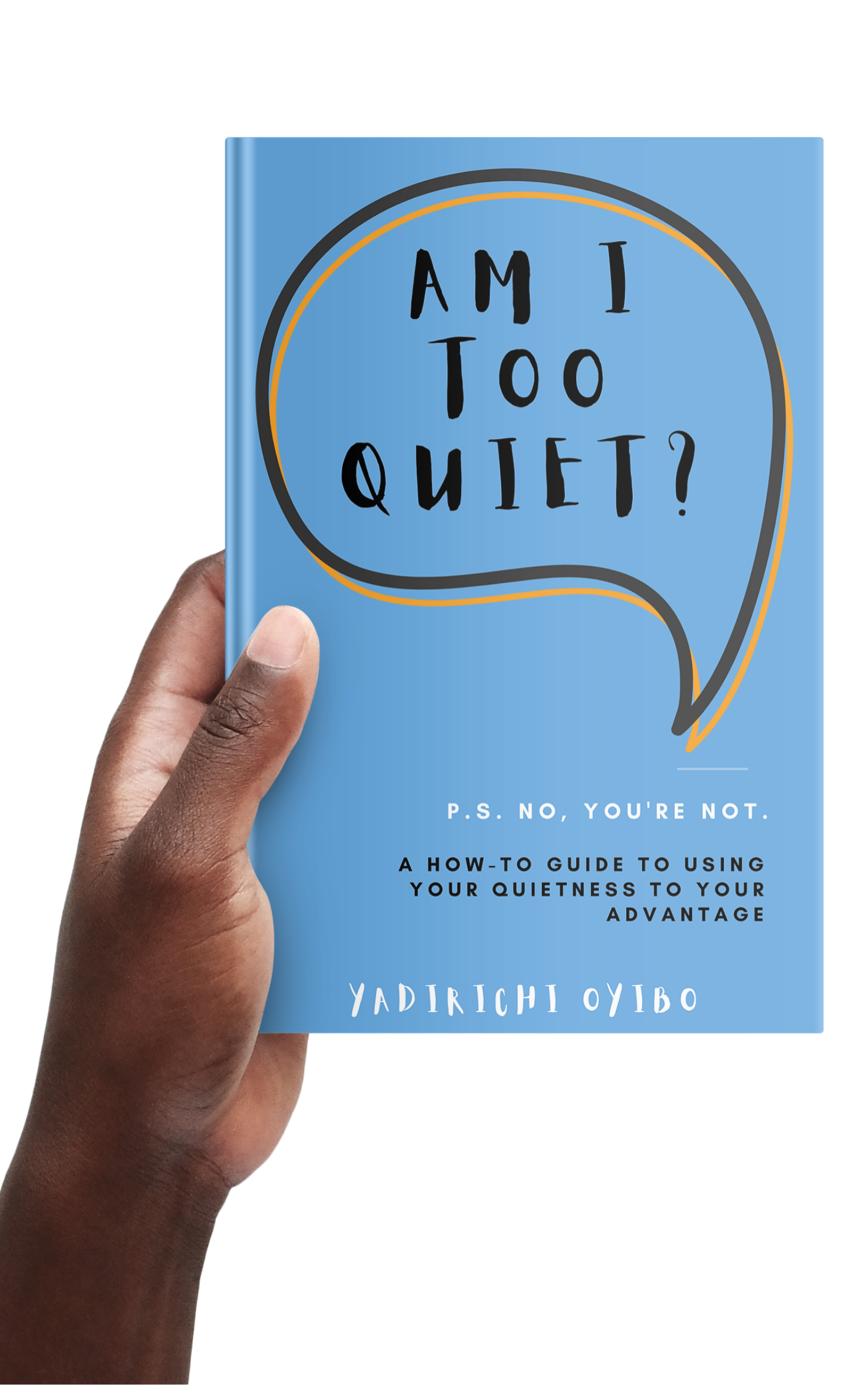I Learned the Nice Way of Saying No Without Feeling Guilty (& You Can Too)
Photo by LOGAN WEAVER | @LGNWVR on Unsplash
It’s the fourteenth time you’re agreeing to do something you don’t really want to do.
And now, you’re sitting by yourself, asking if there’s a better way to decline requests respectfully.
There is—and you’re about to find out.
Saying no doesn’t have to mean destroying your relationship with someone. You can learn how to say no without hurting someone’s feelings.
In this article, we’re going to delve into the art of saying no—most importantly, the psychology behind your inability to turn down requests, and the best way to handle tricky situations with people who can’t stop asking for things.
Why is it So Hard For You to Say No
Saying "no" is often rooted in our emotions, upbringing, and societal expectations. Your personality can also come into play. If you’re like me and you’re naturally altruistic, it would be so hard to learn to say no.
For an in-depth explanation, here are 9 reasons why anyone might feel hard saying no:
1. Fear of Conflict: Many people avoid saying "no" because they don't want to upset others or create tension. If you naturally desire to maintain harmony and avoid confrontation, you will find yourself in many situations where you’re agreeing to do things you don’t want to do.
2. Fear of Rejection: Turning someone down might make you worry that they’ll reject you in return or think less of you. If you’re more on the quieter side and an introvert, you might see it as a need for acceptance and belonging.
3. Guilt About Letting Others Down: You might feel responsible for others' happiness or success. If this is you, it would be hard to prioritize yourself. Your sense of duty or over-responsibility would prevent you from saying no on many occasions.
4. Societal and Cultural Expectations: Many cultures value selflessness with the notion that helping others is a virtue. This makes saying "no" feel selfish. If you have this internalized norm about putting others first, you’d feel guilty when you consider yourself first.
5. Desire to Be Seen as Reliable: Some people always want to be seen as dependable. In this case, saying "no" feels like they’re failing that image. With the fear of damaging that reputation, they’ll want to be available.
6. Lack of Boundaries: If you’re not used to setting clear boundaries, it’s easy to feel pressured to say "yes" to avoid discomfort. Quiet people and introverts might seem unfamiliar with protecting their time and energy, but recognizing your needs is the first step to self-awareness.
7. Overvaluing Others’ Needs Over Your Own: You might unconsciously prioritize others’ needs because you feel their requests are more important than your well-being. This habit of self-sacrifice is commendable but establishing a balance is necessary for your mental health.
8. Worry About Missed Opportunities: The Fear of FOMO (Fear of Missing Out) can make saying "no" feel like shutting the door on something exciting or beneficial. Most times, this isn’t always the case. There might not be anything beneficial happening, but your uncertainty about the future will create anxiety.
9. Lack of Practice: If you’ve always been a "yes" person, when you decide to say no, it can feel foreign and uncomfortable. Thankfully, with this guide, you’ll become more familiar with the process.
A Practical Perspective on Why It’s Important to Say No
Think of saying "no" as choosing wisely rather than rejecting. It’s not about pushing people away but creating a life that reflects your true desires and goals.
That’s what learning how to say no without saying no is all about. You don’t just want to get more free time, but to have better well-being and live intentionally.
If this doesn’t convince you enough, here are 10 more reasons why it’s important:
1. To Protect Your Time and Energy: Time and energy are limited resources. Saying "yes" to everything spreads you too thin. But when you prioritize, you can focus on what truly matters to you and be more effective in your commitments.
2. To Set Healthy Boundaries: Once you’ve set limits for yourself, it prevents you from overextending yourself. This way, you build healthier relationships with others based on mutual respect.
3. To Prioritize What Matters Most: Every "yes" is a "no" to something else, which is often your own goals, needs, or relaxation. Choosing what’s important helps you stay aligned with your values and priorities, and creates a more fulfilling life.
4. To Avoid Burnout: Constantly saying "yes" can lead to mental and physical exhaustion called a burnout. By saying "no," you preserve your energy for rest, self-care, and growth.
5. To Reduce Resentment for Others: Agreeing to things you don’t want to do can make you feel frustrated or taken advantage of. You believe others should know better, but speaking up puts you in control of your life and less resentful of people’s actions.
6. To Build Confidence: Saying no reinforces your self-worth and teaches you that you don’t need to please everyone. It’s the best way to feel empowered and more authentic in your interactions.
7. To Stay True to Yourself: Saying "yes" out of obligation or guilt can make you feel inauthentic. On the contrary, saying "no" lets you live with integrity and focus on what genuinely aligns with you.
8. To Encourage Others to Be Independent: Always agreeing to people’s requests can make them feel like you’re constantly available. This overdependence can become a problem and make them too lazy to find their own solutions.
9. To Focus on Quality Over Quantity: When you say "no" to some requests, you can give your best effort to the commitments you do choose. You produce better results and tend to feel more accomplished in the end.
10. To Make Space for Opportunities: A packed schedule doesn’t leave room for new, meaningful experiences. Saying no allows you to remain open to better opportunities in the future.
Don’t be a Naysayer: This is When Should You Say No
You don’t have to become cold to your friends and family just to protect yourself. Knowing when to say no reduces the guilt that comes with prioritizing your needs—because your needs are indeed important.
There are many polite ways of saying no, but if you use it without reason, you might end up jeopardizing your relationships. To maintain that healthy boundary, here are key situations when you should consider saying no:
1. When It Conflicts with Your Priorities
If saying "yes" takes time or energy away from what truly matters to you—your goals, values, or commitments—it’s time to decline.
Examples:
Skipping a family event to take on extra, unnecessary work.
Accepting a project that detracts from your personal goals.
2. When You’re Overwhelmed or Burned Out
If you’re already stretched thin, adding more to your plate will only make things worse.
Examples:
Taking on extra tasks at work when you’re already working overtime.
Agreeing to plans when you need time to rest.
3. When You Feel Obligated or Guilty
If your main motivation is guilt or fear of disappointing others, it’s a good sign that you should say no.
Examples:
Agreeing to lend money when it would strain your own finances.
Helping someone who consistently takes advantage of your kindness.
4. When It’s Not Your Responsibility
If the request falls outside your role or responsibilities, it’s okay to decline.
Examples:
Being asked to solve someone else’s personal problems.
Picking up slack for others who aren’t pulling their weight.
5. When It’s Against Your Values
If agreeing to something compromises your beliefs or ethics, it’s a firm "no."
Examples:
Being asked to lie or misrepresent something.
Participating in something that goes against your principles.
6. When You Lack the Time or Resources
If you can’t realistically commit without overburdening yourself or sacrificing quality, say no.
Examples:
Volunteering for an event when your schedule is already packed.
Taking on a side project when your current workload is full.
7. When You’re Being Manipulated
If someone is pressuring, guilting, or manipulating you, it’s a clear sign to set boundaries.
Examples:
A friend demanding help but never reciprocating.
A colleague trying to pass off their responsibilities as yours.
8. When It’s Not Something You Want
Sometimes, you just don’t want to do it, and that’s reason enough to say no.
Examples:
Attending a social event when you’d rather spend the evening recharging.
Joining a group activity you’re not interested in.
9. When Saying Yes is a Reflex, Not a Choice
If you find yourself saying "yes" out of habit or without thinking, pause and evaluate whether it’s the right decision.
Examples:
Automatically agreeing to every request at work.
Saying yes to plans out of fear of missing out.
10. When You Need to Protect Your Boundaries
If saying "yes" would violate your personal limits, prioritize your well-being.
Examples:
Allowing work calls during your personal time.
Letting someone push past a boundary you’ve set.
How to Recognize the Need to Say No
Ask yourself:
Does this align with my goals and values?
Do I have the time, energy, or resources for this?
Am I saying yes out of guilt or fear?
Will this decision add unnecessary stress to my life?
If the answer is "no" to these questions, it’s time to say no to the request!
Liking this article? Join our Introvert Club→
Five Polite Ways of Saying No
Yes, you can learn how to say no respectfully. Once you know how to nicely say no without guilt, it can truly be empowering, especially for you.
Here’s the "nice way of saying no" framework, broken down into steps:
1. Acknowledge the Request
Start by appreciating the person or the opportunity to show you're not dismissive.
Examples:
"Thank you for thinking of me."
"I really appreciate you reaching out."
"It means a lot that you considered me for this."
2. Be Clear and Direct
State your "no" kindly but firmly. Don’t give long-winded explanations, which can weaken your response. Stick to simple, but practical responses.
Examples:
"I’m sorry, I can’t commit to this right now."
"Unfortunately, I have to decline."
"This isn’t something I can take on at the moment."
3. Provide a Brief Reason (Optional)
If it feels appropriate, share a genuine reason, but don’t feel pressured to over-explain.
Examples:
"I’m currently focusing on other priorities."
"My schedule is fully booked right now."
"I need to take some time for myself."
4. Offer an Alternative (Optional)
If possible, suggest another way to help or redirect them to someone else.
Examples:
"While I can’t help directly, I know someone who might be a good fit."
"I’m not available now, but I’d love to revisit this in the future."
"Maybe I can assist with a smaller part of the project."
5. End on a Positive Note
Reaffirm your respect or gratitude to leave the interaction on good terms.
Examples:
"I hope it goes really well!"
"Thanks again for understanding."
"Let’s stay in touch!"
Examples in Action:
For Work:
"Thank you for considering me for this project. Unfortunately, I can’t take it on right now due to my current workload. I hope it’s a success!"For Friends:
"I’d love to hang out, but I need some time to recharge this weekend. Let’s catch up soon, though!"For Volunteering:
"This cause is so important, and I wish I could join. Unfortunately, I can’t commit right now, but I’ll cheer you on from the sidelines!"
Tips to Overcome Guilt
Remember Your Limits:
Saying "yes" to everything often leads to burnout. If you protect your time and energy, it benefits everyone.Reframe Your Perspective:
Saying "no" doesn’t make you selfish—it makes you intentional.Practice:
The more you say "no," the easier it becomes. Start small and build confidence.Self-Compassion:
Remind yourself it’s okay to prioritize your needs and goals.
Pin this ↓
Over to you
Learning to say "no" isn’t selfish. Think of it as taking care of yourself so that you can be your best. But not everyone will understand this, and that’s fine. There’ll always be that one person who doesn’t value your need for alone time. Don’t stress over their complaint. Focus on those who prioritize you, and you’re good to go.
Live Your Best Quiet Life
Get the Am I Too Quiet? book →














